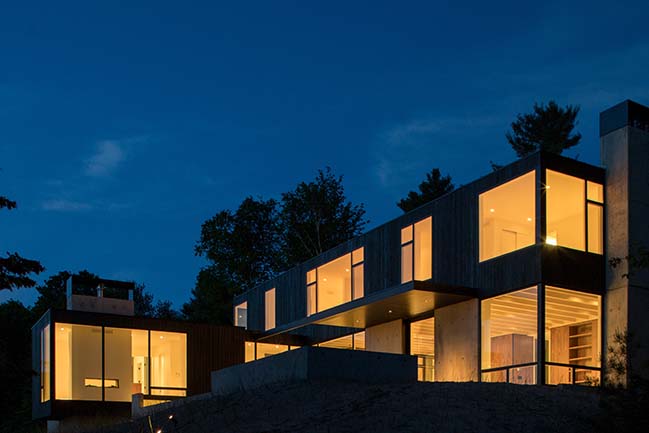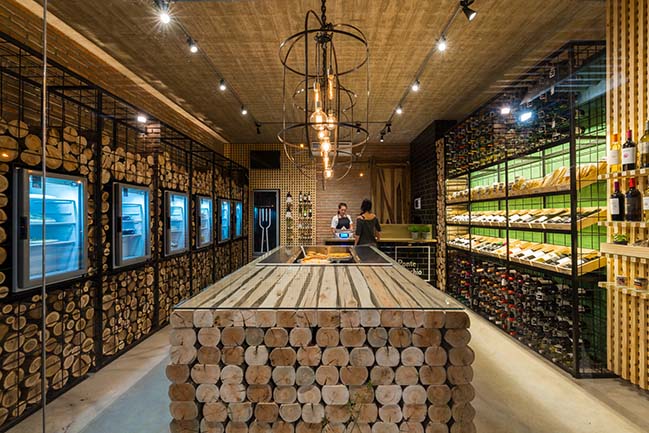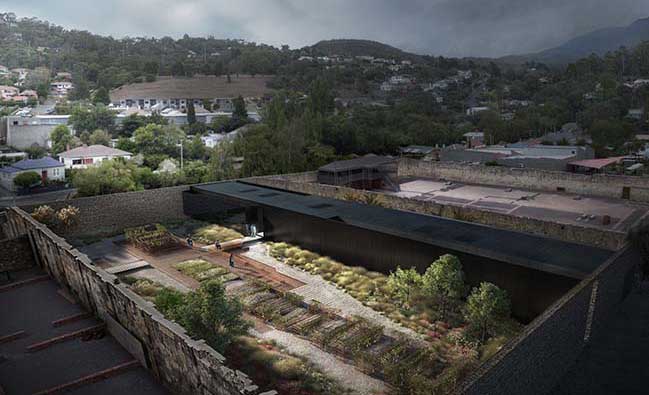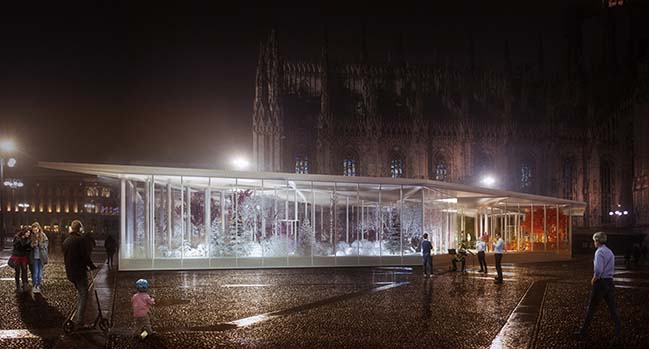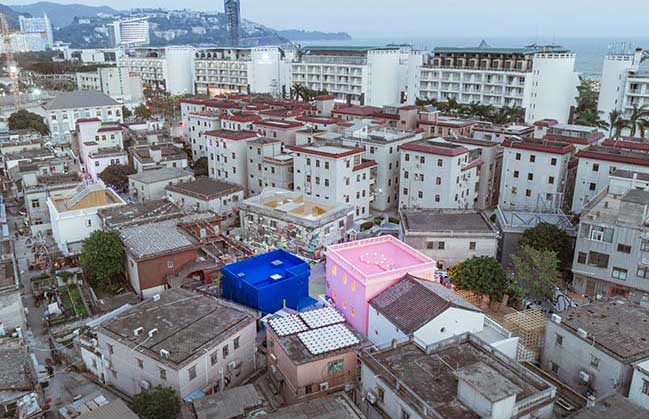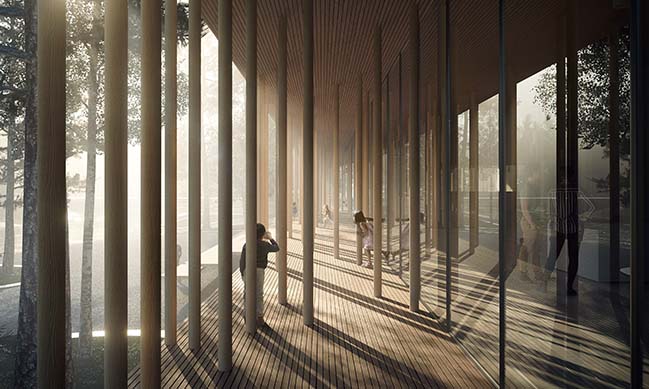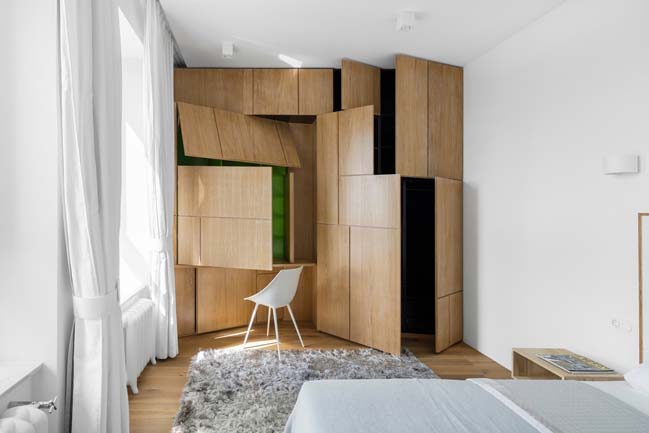03 / 04
2018
Design by the architecture firm COULSON. Disappear Retreat is a transparent, stargazing, triple-zero building, dissolving the impact on the environment physically and aesthetically.
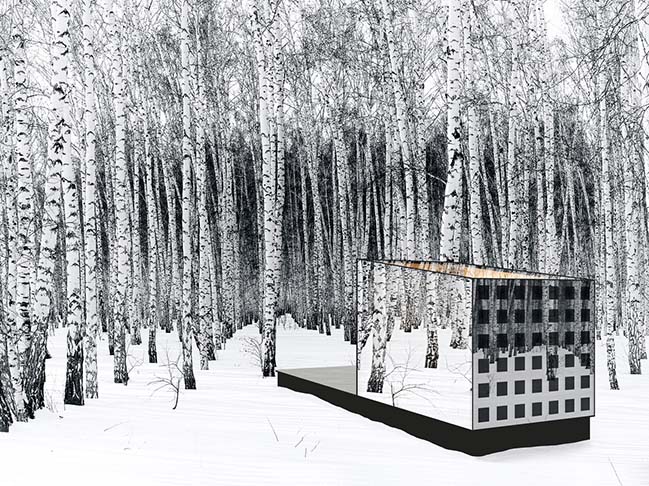
Architect: COULSON
Location: Grand Marais, MN, United States
Year: 2018
Project size: 83 ft2
Photography: Carly Coulson
From the architect: This compact, prefabricated, off-grid dwelling offers an affordable, minimalist lifestyle in resources, cost, and design. The high-performance enclosure meets the Passive House Standard and will pursue Living Building Challenge certification, the two most rigorous environmental targets in the world. The 83 sqft building requires no active heating or cooling systems and has a peak heating load of just 100 watts (1 light bulb) in the extreme cold of northern Minnesota. It performs similarly well in cold climates from Seattle to Buffalo and Chicago to Calgary. This groundbreaking design by the architecture firm COULSON strives for a paradigm shift, inspiring the public and AEC industry that low-tech, sustainable building is attainable now without sacrificing aesthetic freedom.
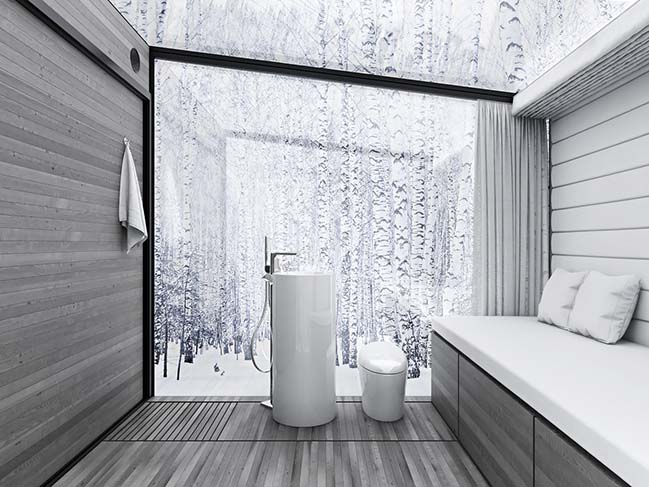
Scattered amongst the boreal forest near Grand Marais, Minnesota like a family of spotted mushrooms, the first prototype buildings will form a Retreat Center offering a non-profit residency program to artistic and scientific professionals, public outreach on sustainable building and climate change, and overnight stays for those interested in test-driving the design. Visitors will become attune to resource use and the naturally integrated sustenance from the earth and sun and gain creative rejuvenation and inspiration from the landscape. Prototype construction is underway, Spring/Summer 2018, and will undergo rigorous testing at this site before launching into production and available to the public in 2019.
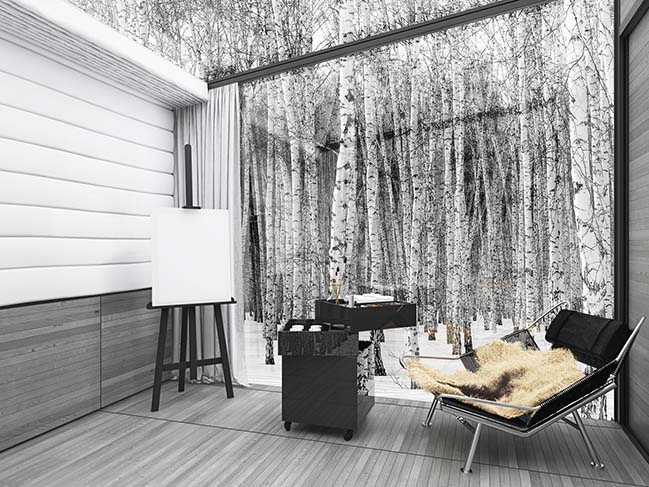
Stargazing under a dazzling night sky, hiking in the luscious tapestry of the boreal forest, feeling a primordial desire to insinuate oneself into this nourishing place with a transparent design where the universe overhead and surrounding ecosystems press close. Retreat is quiet in scale and materials, reflecting the identity of the site in its mirrored glass (transparent ultraviolet color prevents animal collision) and the grey weathered wood blending with rock and trees. Three Retreat models have identical enclosures and alternative interiors. Bed+Bath has built-in sofa/bed with storage, toilet, sink, shower, refrigerator, and induction cooktop. Basic model is a flexible open plan for art, music, meditation, office, and living space. Sauna model has built-in benches and sauna heater. The mobile design fits on a standard trailer, has minimal impact on the land, and is adaptable to changes in climate, ownership, function, and economics.
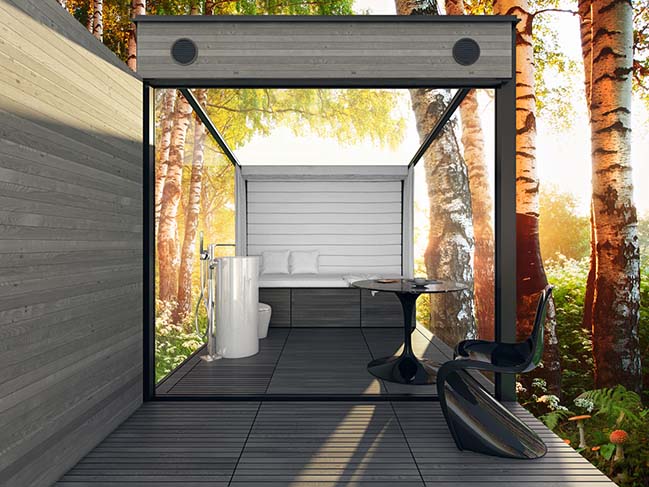
Disappear Retreat is a zero-energy, zero-waste, zero-water facility. Using a passive design approach of super-insulation, air tightness, thermal bridge-free details, compact form, winter passive solar, and summer shading the heating load is reduced by 95%, eliminating the need for mechanical heating and cooling systems, and the energy demand is reduced by 86% before any renewable energy is applied. This allows a very tiny photovoltaic system seamlessly integrated into the south glass wall to achieve positive-energy. An integrated plumbing system consists of grey, black, and potable water tanks, similar to an RV. The Shed houses composting and rainwater treatment systems to handle waste and water from multiple Retreat structures on-site and has a photovoltaic system for electric vehicle charging. Buildings are fully assembled in factory.
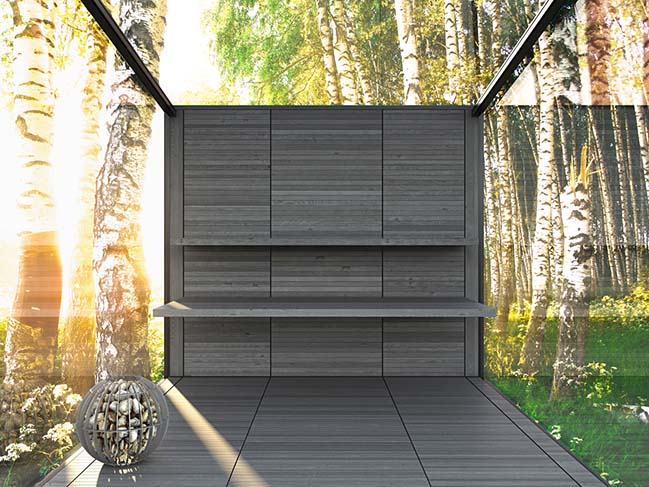
Disappear Retreat integrates these low-tech solutions and components into an almost invisible state, it’s not obvious it is a green building. The design is light, transparent, and seamlessly connected to the surroundings. It gives the feeling of living outdoors. It’s this attentive care in merging design with performance that is unique. The innovation is smart integration and rigorous energy modeling.
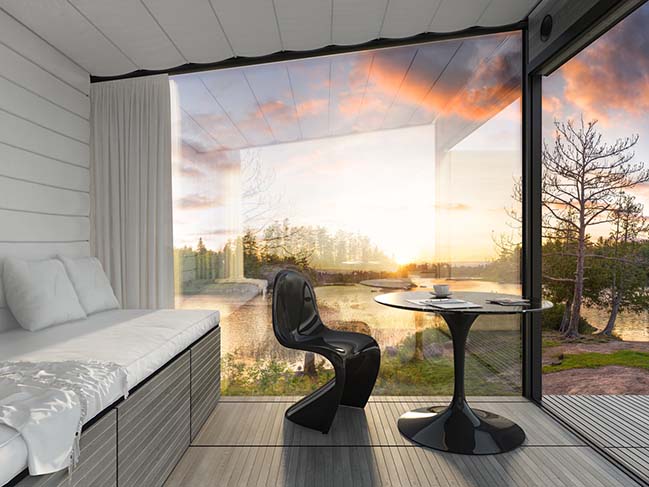
Today we have the components needed for simple, affordable, low-energy building without sacrificing aesthetics. Disappear Retreat strives to change the perception of sustainable design and connect with new audiences. Its small size makes it approachable, understandable, and transportable, maximizing public education value, while its low-tech strategies are transferrable to other scales, solutions, and locations.
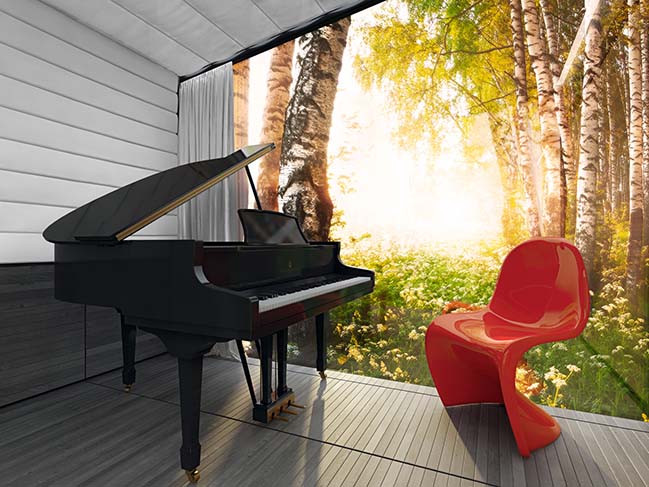
What is the project innovation?
This compact, prefabricated, off-grid dwelling offers an affordable, minimalist lifestyle in resources, cost, and design. The high-performance enclosure meets the Passive House Standard and will pursue Living Building Challenge certification, the two most rigorous environmental targets in the world. The 83 sqft building requires no active heating or cooling systems and has a peak heating load of just 100 watts (1 light bulb) in the extreme cold of northern Minnesota. It performs similarly well in cold climates from Seattle to Buffalo and Chicago to Calgary.
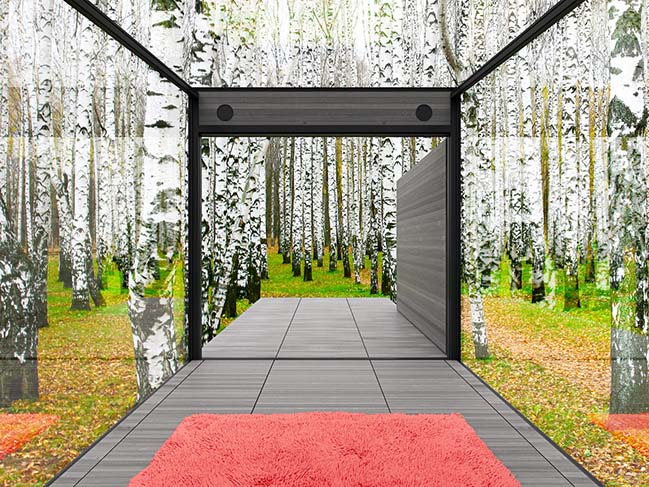
What was the catalyst for the project?
The vision for Disappear Retreat came under the night sky viewing a psychedelic show of northern lights and imagining a small, self-sufficient retreat with a glass roof where the universe overhead and surrounding ecosystems press close, where one feels connected to the planet and can sleep under the dazzling stars and dream with eyes open.
The project aims to change the perception of sustainable design and connect with new audiences. Its small size makes it approachable, understandable, and transportable, maximizing public education value, while its low-tech strategies are transferrable to other scales, solutions, and locations.
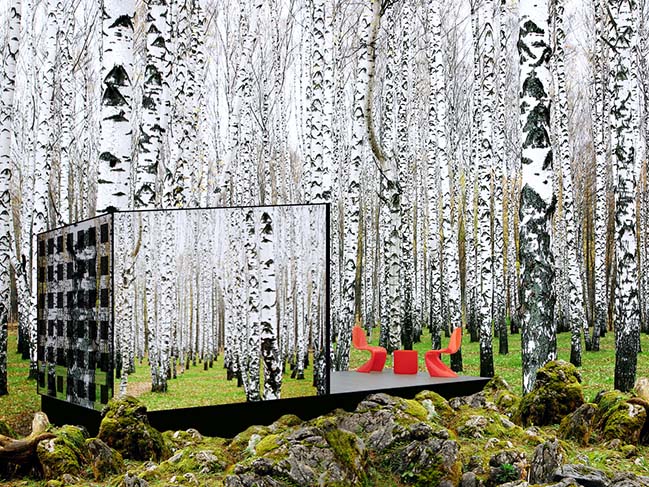
What is the approach to zero energy?
The design takes a conservation-first, keep-it-simple approach with passive solutions that drastically cut energy use.
The 8x10x9ft structure is incredibly compact, reducing exterior surface area and, therefore, unwanted heat loss or gain. The air-tight and super-insulated enclosure will never drop below 60°F inside no matter how cold outside and without any sun exposure, so plumbing systems are always safe. Passive solar heating through the glass roof and walls is utilized in the winter, modulated in spring/fall with insulated shades, and blocked in summer by trees and shades. These strategies reduce the peak heating load to just 100 watts (1 light bulb), a 95% reduction. No mechanical heating or cooling is needed.
With the heating and cooling loads eliminated, the remaining energy demand for the Bed+Bath model is just 7 kBtu(ft2yr) (an 86% reduction compared to the Midwest average). This includes tankless electric hot water, refrigerator, ventilation, induction cooktop, LED lighting, water system, and consumer electronics assuming 1 occupant full-time with occasional guests.
This tiny energy demand is easily supplied by the off-grid photovoltaic system integrated into the south glass wall, achieving zero-energy with small battery storage. The sun provides all we need.
Investing in passive, long lasting, and integrated elements like insulation means the performance will last the lifetime of the building (50+ years).
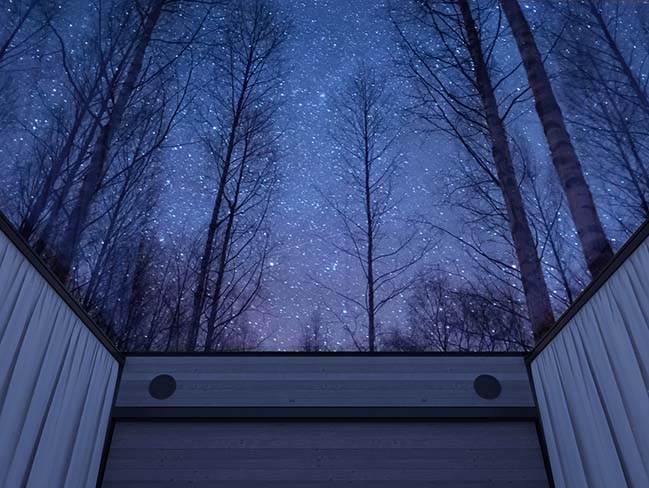
Which climate zones is Disappear Retreat designed for?
Disappear Retreat meets comfort and performance targets for Passive House and Zero-Energy in cold climate locations like Minneapolis, Duluth, Portland, Vancouver, Seattle, Toronto, Edmonton, Montreal, and Calgary. With minor adjustments to the glass solar heat gain Denver, Provo, Chicago, Madison, Buffalo, and New Haven also perform well. All Disappear Retreat locations will have a custom site and climate evaluation.
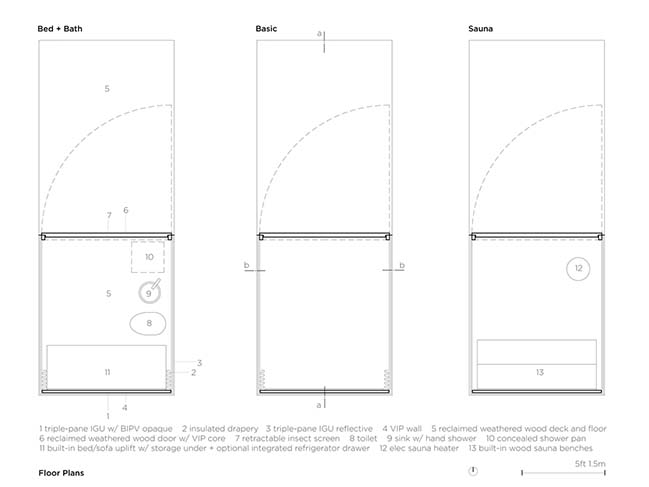
What is the approach to zero water and waste?
Under the accessible floor of the Retreat Bed+Bath is a potable water tank for sink/shower, a greywater tank for sink/shower wastewater, and a blackwater tank for toilet waste. These systems are similar to an RV and keep energy, complexity, cost, land disturbance, and floor height at its lowest. The Shed provides composting and rainwater treatment for multiple Retreat buildings to achieve a Zero-Water Zero-Waste facility. Filling/emptying of tanks is required every 2 weeks. Tote-along portable tanks with vacuum pump can transfer waste and water, allowing a remote location of Retreat. A portable pump and hose works if Retreat and Shed are within a few hundred feet. At sites with existing septic and well or city services, Bed+Bath can connect to them, but is no longer zero water/waste.
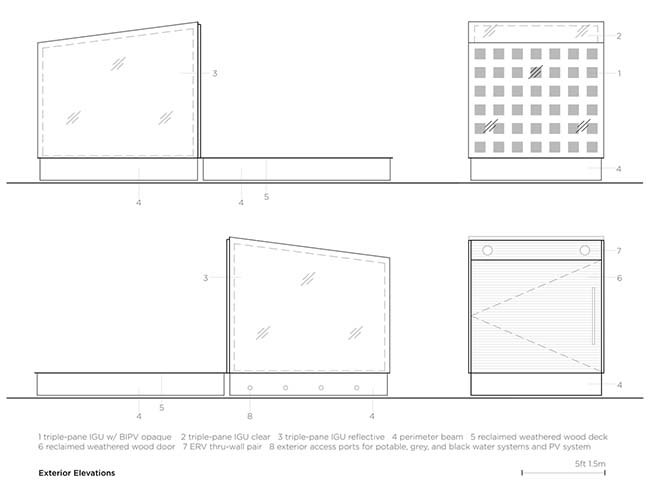
What is the motivation for the artist Retreat Center?
The project is designed for and inspired by creative work. Art, literature, music, and poetry influence the sense of place we are striving to achieve. Exploring surreal, transcendental, nouveau, abstract, bauhaus, minimalist, classical, and experimental universes. The dwelling provides an immersion in nature to recharge the mind and creativity, allowing occupants to disappear into their work and the landscape. “I seek the power of the rock, the magic of the water, the religion of the tree, the color of the wind, and the enigma of the horizon.” - George Morrison
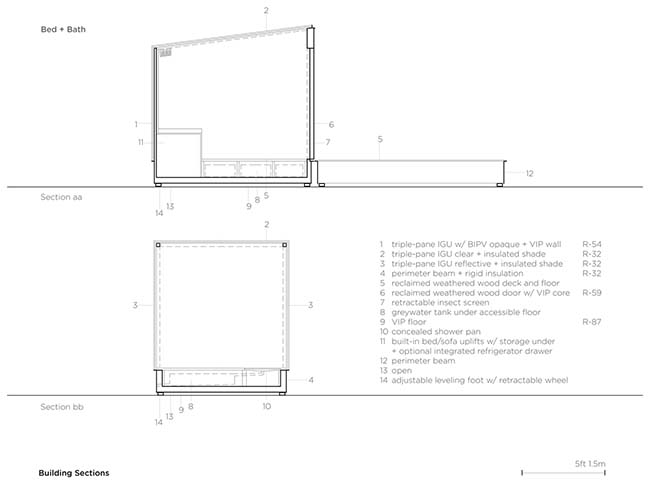
What is the function of the Shed?
Rainwater is collected off the Shed roof, filtered, treated, and stored in tank for potable water use onsite. All blackwater waste is treated in a composting system. A pattern of thin-film PV is integrated into the south facing roof and door panels and supplies power to the waste and water systems, electrical vehicle charging, and excess is stored in batteries for Retreat building emergency backup. Shed uses passive solar heating through the roof eliminating need for mechanical heating and keeping waste and water systems operational in winter. The 5x7x20ft structure stores bikes, kayak, bins, and maintenance tools. It’s also ideal for winter gardening. Like Retreat, the Shed dissolves into the landscape with reflective glass, photovoltaic spots, and grey weathered wood.
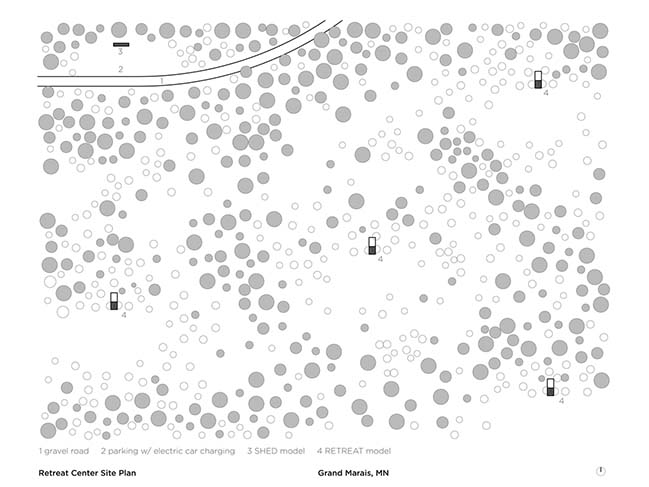
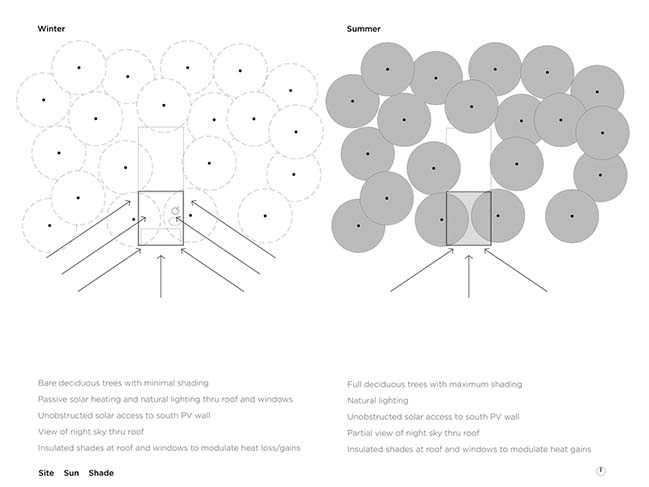
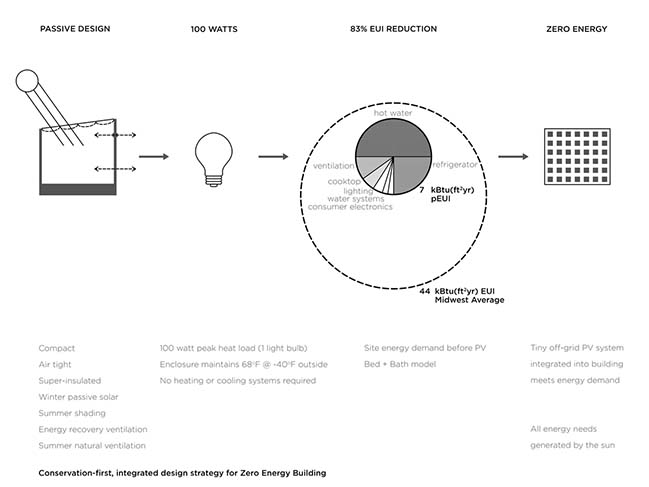
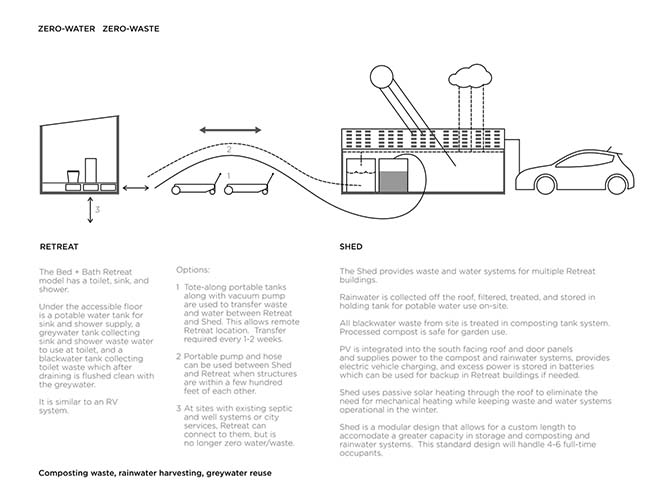
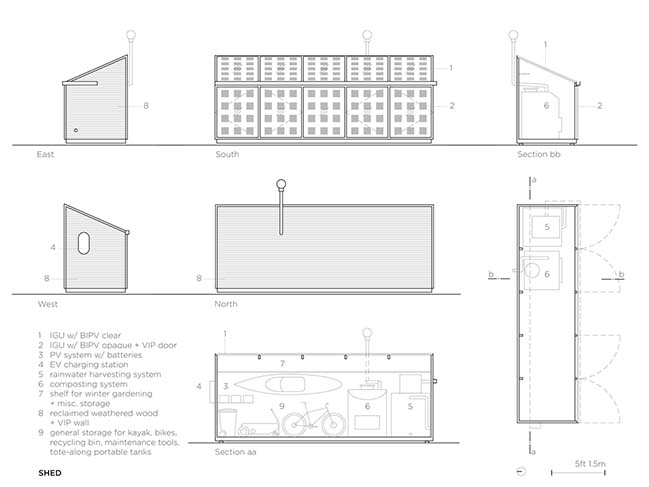
> A writer's retreat in Mid Wales by TRIAS
> Villa Slow holiday retreat by Laura Alvarez Architecture
Disappear Retreat in Grand Marais by COULSON
03 / 04 / 2018 Disappear Retreat is a transparent, stargazing, triple-zero building, dissolving the impact on the environment physically and aesthetically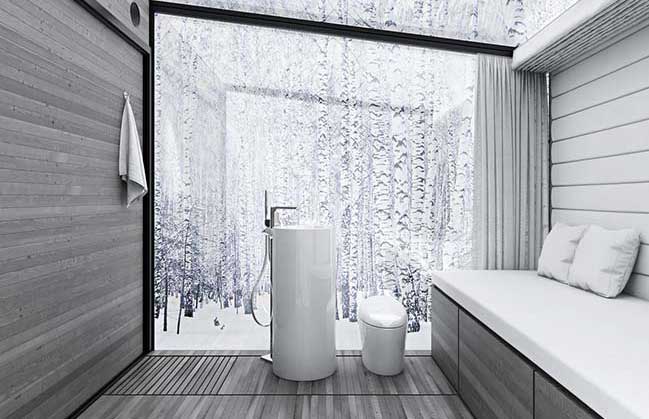
You might also like:
Recommended post: Apartment in Moscow by Monoloko Design
